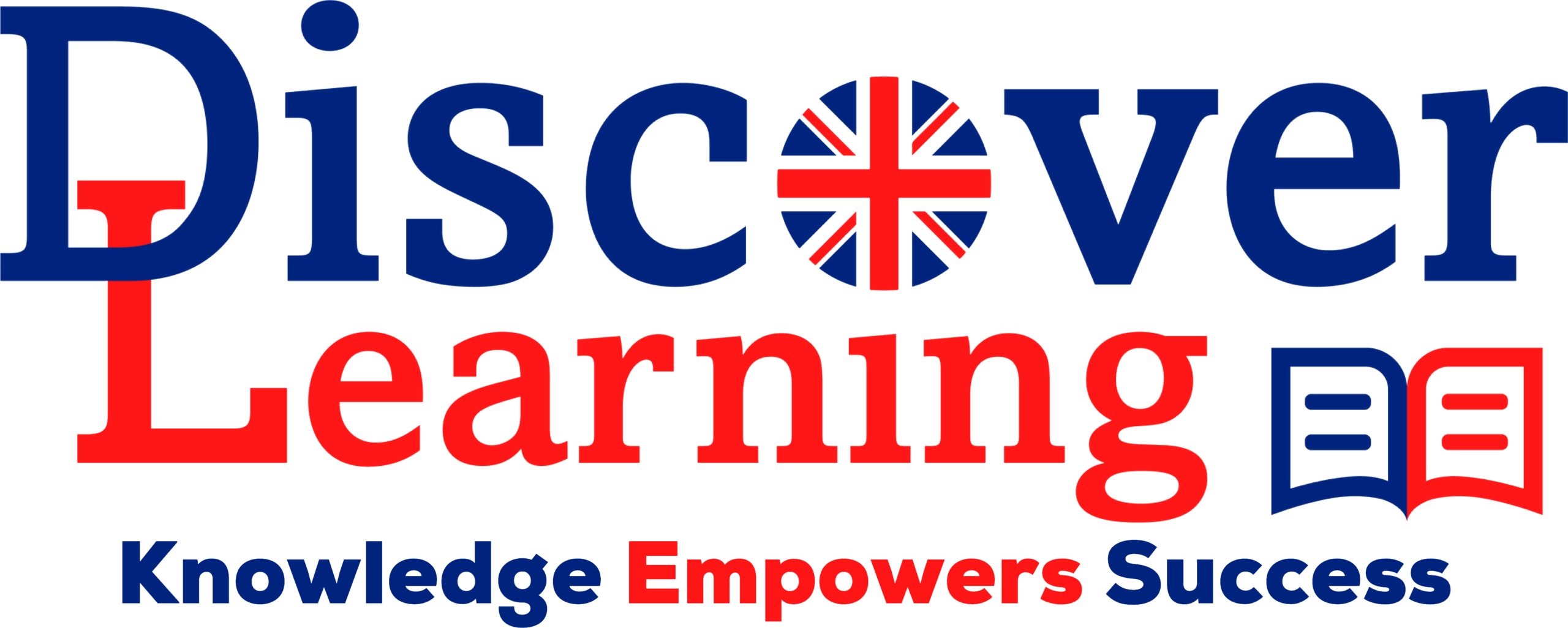
Mathematics has long been considered one of the most challenging subjects for students, often associated with fear, memorization, and rote problem-solving. However, modern educational research reveals that students learn best when they can relate concepts to the real world. This is where Problem-Based Learning (PBL) makes a significant difference. By emphasizing hands-on experiences and critical thinking, PBL helps learners connect abstract formulas to tangible, meaningful contexts.
At Discover Learning Tutors, a leading tuition centre in Dubai, we specialize in transforming traditional math education into engaging, problem-solving experiences. Our certified math tutors focus on creating learning environments where curiosity drives achievement and confidence replaces anxiety. Through the power of Problem-Based Learning in Mathematics, students not only excel academically but also develop lifelong skills such as reasoning, collaboration, and independent learning.
In this article, we’ll explore how PBL redefines math learning, its benefits, strategies, real-world impact, and why Discover Learning Tutors is your go-to destination for mastering mathematics with a difference.
What Is Problem-Based Learning in Mathematics?
Problem-Based Learning (PBL) is an innovative teaching approach where students learn by solving complex, real-life problems instead of memorizing formulas. It encourages inquiry, exploration, and reasoning—key skills for mastering mathematics.
At Discover Learning Tutors, PBL forms the foundation of our math sessions. Students engage in dynamic problem scenarios that mirror real-world challenges—budgeting, architecture, or statistical modeling. Rather than being passive listeners, learners actively explore, test hypotheses, and collaborate on solutions.
1. Origin and Evolution of PBL
PBL originated in medical education during the 1960s but quickly spread to disciplines like mathematics and engineering. Its success lies in its ability to develop analytical and decision-making skills. Discover Learning Tutors integrates PBL into all math levels—from primary to advanced—aligning each session with curriculum objectives and international standards (IGCSE, IB, SAT).
2. Why It Works in Mathematics
Mathematics thrives on application and logic. PBL transforms abstract numbers into relatable situations, helping students understand why formulas work, not just how. At Discover Learning Tutors, tutors guide learners to analyze, research, and discover solutions through inquiry-based exploration, promoting deeper conceptual understanding.
Benefits of Problem-Based Learning in Mathematics
Problem-Based Learning offers a wide range of academic and personal growth benefits. Students develop analytical, collaborative, and communication skills essential for success in modern education.
At Discover Learning Tutors, we’ve seen students become confident thinkers who approach math with curiosity instead of fear.
1. Deep Conceptual Understanding
When math connects to real-world applications, students retain knowledge longer. PBL encourages exploration—students see geometry in architecture or algebra in business. Through guided discovery, Discover Learning Tutors ensures every learner builds lasting comprehension rather than short-term memorization.
2. Boosted Motivation and Confidence
Traditional methods can discourage students, but PBL engages them with purpose-driven learning. By solving practical problems, learners feel capable and motivated. Discover Learning Tutors creates this sense of accomplishment daily, helping students rediscover their potential in mathematics.
The Structure of PBL in Mathematics
PBL follows a structured learning cycle that transitions students from problem identification to reflective evaluation. At Discover Learning Tutors, our tutors follow a five-step model designed for clarity, engagement, and measurable outcomes.
1. The Five-Step PBL Cycle
- Problem Presentation – Students are introduced to real-world problems.
- Team Formation – Collaborative groups explore diverse perspectives.
- Guided Inquiry – Tutors support research and critical questioning.
- Solution Development – Learners apply mathematics to create solutions.
- Reflection & Assessment – Students evaluate results and refine strategies.
2. Tutor’s Role in Guiding PBL
At Discover Learning Tutors, tutors act as facilitators, not lecturers. They guide inquiry with thought-provoking questions, helping students develop independent problem-solving abilities. This creates an environment where curiosity and understanding thrive.
Technology and Tools for Modern PBL
In today’s digital era, technology enhances every aspect of learning. Discover Learning Tutors integrates cutting-edge tools that support active engagement, collaboration, and creativity in math lessons.
1. Interactive Learning Platforms
Our classrooms are equipped with smart boards, virtual simulations, and math software that visualize abstract concepts. These tools allow students to manipulate data, analyze graphs, and understand mathematical models more effectively.
2. Online Collaboration and Research
Discover Learning Tutors encourages teamwork through digital platforms where students can collaborate remotely, share findings, and present research. This fosters teamwork and tech literacy—skills vital for future academic and professional success.
Real-World Applications of PBL in Mathematics
PBL bridges the gap between classroom theory and real-world practice. At Discover Learning Tutors, math problems are inspired by everyday life and current global issues.
1. Everyday Math Connections
Students might calculate sustainable building materials, create budgets, or analyze market trends. This hands-on application ensures they see mathematics as a tool for understanding the world, not just a subject.
2. Building Transferable Life Skills
Through problem-solving, students develop transferable skills—decision-making, teamwork, and critical analysis. These extend beyond math and prepare learners for STEM careers and real-world challenges.
The Role of Collaboration in PBL
Teamwork is a central element of Problem-Based Learning in Mathematics. Students work in groups to brainstorm, debate, and validate solutions collaboratively.
1. Enhancing Communication Skills
Group work teaches students how to articulate ideas clearly, defend reasoning, and value others’ perspectives. Discover Learning Tutors emphasizes these skills in every session to build well-rounded learners.
2. Peer Learning and Support
Collaborative learning allows peers to support one another, boosting confidence and shared success. Our tutors foster inclusive discussions where every student feels heard and encouraged.
Measuring Success and Progress in PBL
Assessment in PBL focuses on growth, understanding, and skill development. Discover Learning Tutors uses performance-based evaluation methods to measure student progress effectively.
1. Reflective Learning Assessments
Instead of traditional tests alone, students engage in self-evaluation and group reflection. This builds awareness of strengths and areas for improvement—key elements of lifelong learning.
2. Continuous Tutor Feedback
Regular feedback helps students refine strategies and maintain motivation. At Discover Learning Tutors, personalized feedback ensures each student continues progressing toward mastery.
Why Choose Discover Learning Tutors for PBL Math Tuition
Discover Learning Tutors stands out as a premier destination for Problem-Based Learning in Mathematics in Dubai. With certified tutors, interactive classrooms, and a custom curriculum, we ensure students receive personalized, high-quality education.
1. Expert-Certified Math Tutors
Our tutors undergo specialized PBL certification, ensuring each lesson is engaging, student-centered, and curriculum-aligned. They guide learners toward academic excellence through motivation and mentorship.
2. Personalized, Holistic Support
Beyond math skills, we nurture confidence, creativity, and critical thinking. Discover Learning Tutors helps every learner unlock their full potential and view math as a skill for life.
Conclusion
Problem-Based Learning in Mathematics represents the future of education—one that promotes understanding over memorization, curiosity over compliance, and engagement over fear. Students learn best when they can connect numbers and equations to their world, and PBL provides that bridge.
At Discover Learning Tutors, we take pride in offering a transformative math learning experience tailored to every student’s needs. Whether your child is struggling with basic concepts or preparing for international exams, our PBL-based tuition programs ensure they not only improve academically but also develop essential skills for lifelong success.
Choosing Discover Learning Tutors means choosing innovation, expertise, and empowerment. Join us today and experience how real-world problem solving can make mathematics both meaningful and enjoyable.
Frequently Asked Questions
1. What makes Problem-Based Learning different from traditional math teaching?
PBL emphasizes solving real-world problems rather than memorizing formulas, leading to deeper understanding and engagement.
2. How does Discover Learning Tutors apply PBL in math classes?
We integrate real-life scenarios, collaborative projects, and guided inquiry to make learning interactive and practical.
3. Is PBL suitable for exam preparation like IGCSE or IB?
Yes. PBL helps students grasp core concepts, enhancing performance and analytical skills essential for exams.
4. Can PBL help reduce math anxiety?
Absolutely. By making learning enjoyable and relatable, students feel more confident and less intimidated by math.
5. Why choose Discover Learning Tutors for PBL-based math tuition?
Because it’s where expert tutors, innovative teaching, and personalized learning come together to build mathematical success.
